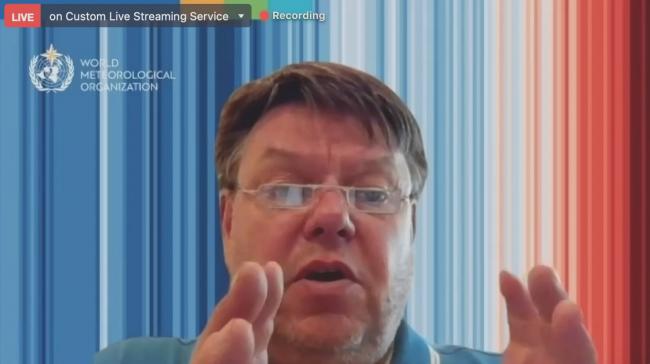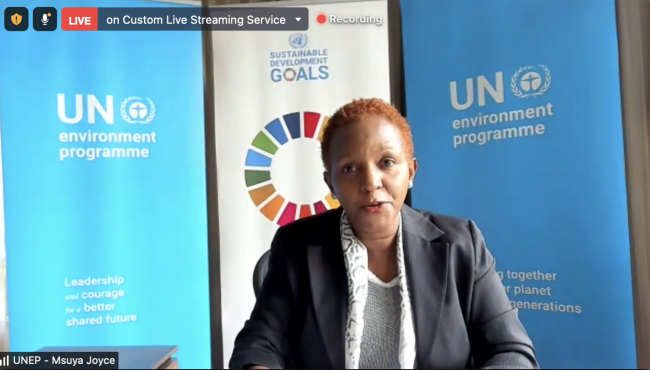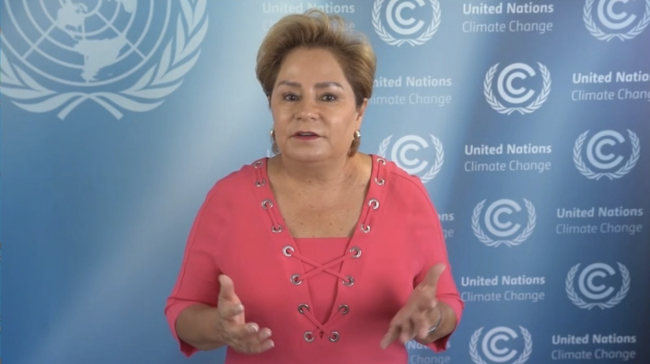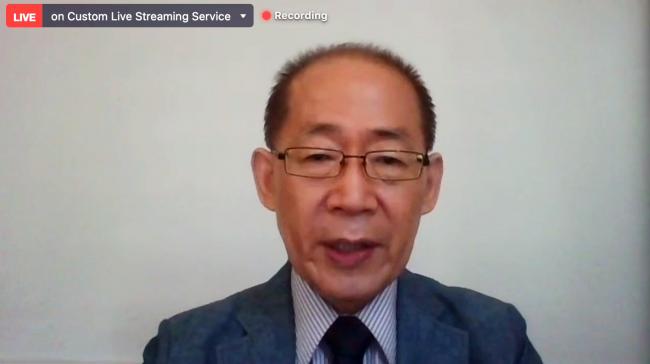IPCC Secretary Abdalah Mokssit opened the meeting, noting the IPCC is breaking ground in conducting the WG I approval session in a virtual context.
Petteri Taalas, Secretary-General, World Meteorological Organization (WMO), underscored the WG I report will provide a crucial input for the 26th session of the Conference of the Parties to the UN Framework Convention on Climate Change (UNFCCC). Pointing to the increased frequency of extreme weather events, he underscored the importance of early warning systems, and called for investing in adaptation and ambitious mitigation action.
Joyce Msuya, Deputy Executive Director, UN Environment Programme (UNEP), lauded the IPCC for keeping up its important work in the challenging pandemic context. She urged countries to ensure a green recovery from COVID-19 and to translate net-zero commitments into concrete action. As key priorities, she highlighted: finance for adaptation; stronger focus on nature-based solutions in updated nationally determined contributions (NDCs) to the Paris Agreement; and uniting the climate and nature agendas.
Patricia Espinosa, UNFCCC Executive Secretary, recalled that science has consistently warned of an increase in extreme weather events, and, noting that current emission levels put the world on a trajectory towards more than a 3˚C rise in average global temperature, emphasized the need to change course. Looking towards COP 26, she urged governments to present strategies for achieving a 45% reduction in emissions by 2030 and reaching net-zero emissions by 2050, and to submit more ambitious NDCs.
IPCC Chair Hoesung Lee lauded WG I for its work, underscoring the challenging pandemic context, the increasing amount of literature to cover, and the unprecedented production of three Special Reports during the Sixth Assessment Report (AR6) cycle. After the Panel adopted the provisional agenda for the meeting, as well as the reports of IPCC-53 and IPCC-53 bis, Chair Lee suspended IPCC-54 until Friday, 6 August, to allow WG I-14 to begin its work.
WG I-14 began its consideration of the Summary for Policymakers of the WG I contribution to the IPCC’s AR6, which focuses on the physical science basis of climate change. Delegates discussed a box on scenarios, climate models, and projections, as well as a subsection on human influence on the climate system. Authors will reflect on comments received during the session, and both sets of issues will be further addressed in dedicated contact groups.
To receive free coverage of global environmental events delivered to your inbox, subscribe to the ENB Update newsletter.










